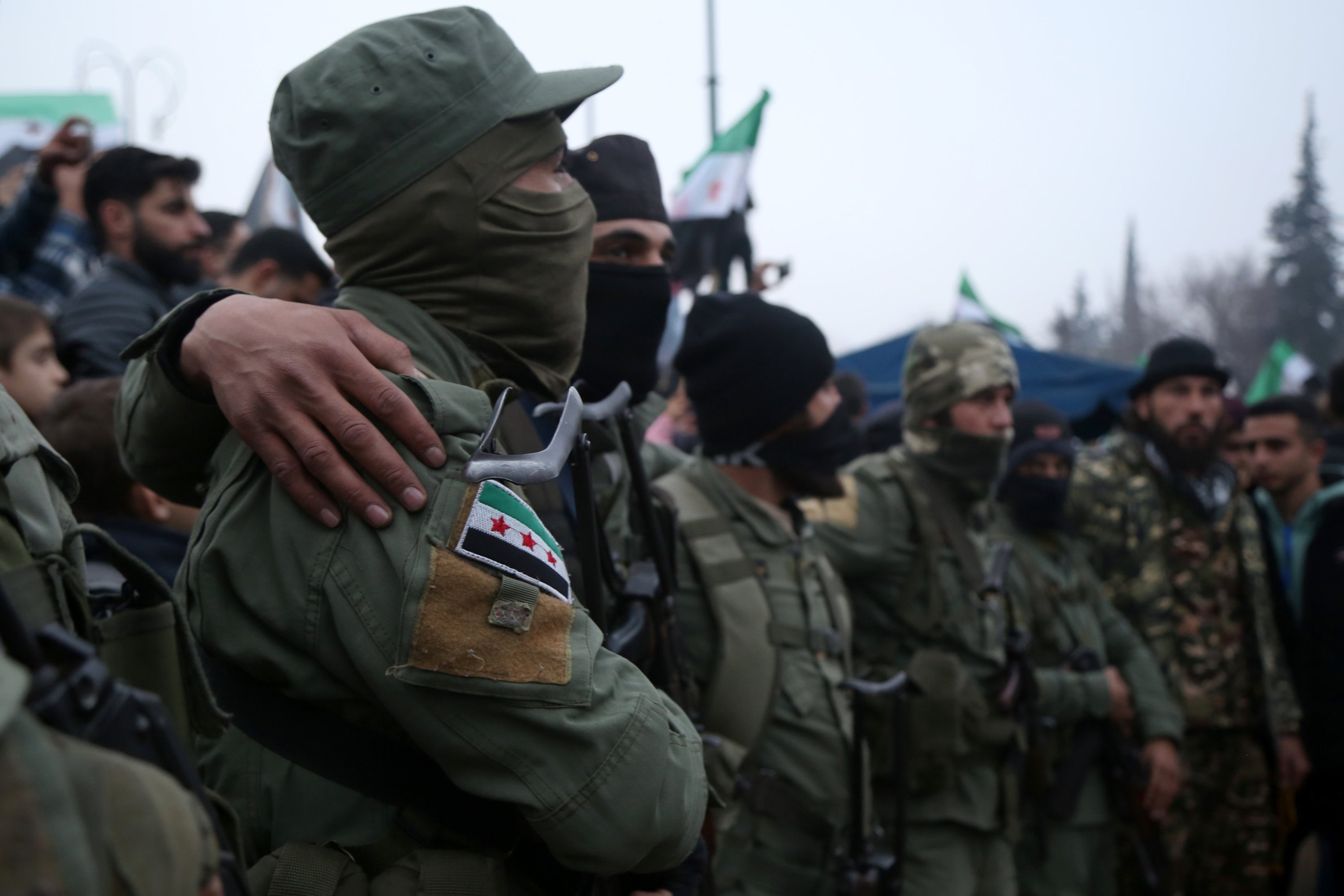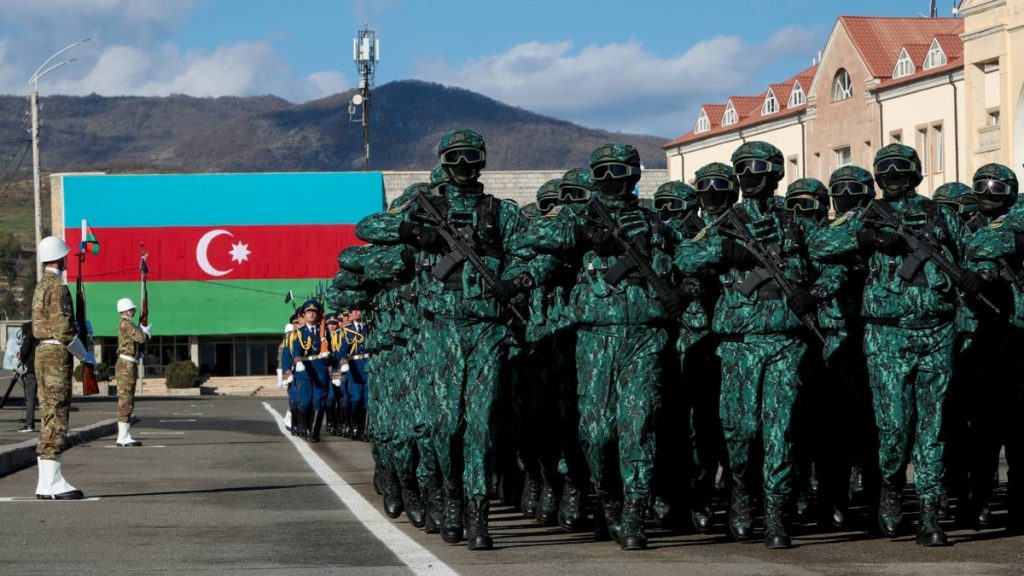With the fall of Syrian regime leader Bashar Assad from power, the newly re-established Syria has been occupying the regional and world agenda. Many see this as the liberation of Syria, while issues such as the Ukraine-Russia and Israel-Palestine conflicts linger in the background.
Almost exactly four years ago, an incident took place that occupied the agenda in the South Caucasus and was similar to the situation in Assad’s Syria. Namely, the Karabakh region of Azerbaijan, which had been under Armenian occupation for 30 years, was liberated. The Republic of Türkiye did not withhold its diplomatic and political support from its brother and ally Azerbaijan in the liberation of Karabakh, where the Azerbaijani army lost 3,000. There are many similarities and some differences between the Syria that Assad left behind and Karabakh, which was liberated from Armenian occupation in 2020.
Shared suffering and struggle
After the events of 2011, Assad massacred Syrians opposing him in the country, and many escaped to save their lives. Around 1 million people lost their lives during the Syrian war, while more than 10 million Syrians were forced to flee to neighboring countries. Now, however, with Assad gone, these refugees hope of returning has re-emerged.
What the Assad regime did in Syria, Armenia did during the occupation of Karabakh 30 years ago. As a result of Armenia’s occupation of Azerbaijani lands, 30,000 people were killed, and 1 million people became refugees from their own lands. That is, Armenia carried out ethnic cleansing in Karabakh. Then, in 2020, with the liberation of Karabakh as a result of the 44-day war, people began to return.
A destroyed and dispersed Syria emerged after Assad. The same situation applies to Karabakh. According to the information provided in President Ilham Aliyev’s latest report, Armenia caused $150 billion worth of damage to Azerbaijan in Karabakh. While Armenia occupied 12 regions of Azerbaijan, the complete destruction of three cities and the partial destruction of five took place. The Armenians plundered these regions and sold the spoils.
The Assad regime took people captive in Syria, held them captive in Sednaya prison and tortured them. Armenia did the same in Karabakh, in a prison in the occupied city of Shusha. Azerbaijanis who were taken captive for defending their own lands or civilians were tortured in Shusha prison.
Mass graves have emerged in Syria following Assad’s fall. This also happened in the Azerbaijani lands that were liberated from occupation. The mass graves of 4,000 Azerbaijanis who went missing in the First Karabakh War and of whom there was no news for 30 years were located in the liberated regions.
Russia and Iran helped the Assad regime to continue the civil war in Syria for many years. Assad left power because Russia withdrew its support, and Iran was left alone. Armenia’s allies were also Russia and Iran. For many years, Armenia was supported by Russia and Iran in military, political and economic terms and thus was able to sustain the occupation for 30 years.
In fact, there were very close relations between the Assad regime and the Armenian government. Armenians living in Syria were settled illegally in the occupied Azerbaijani lands. After Armenian Prime Minister Nikol Pashinyan was elected prime minister, he sent congratulatory letters to Assad on many occasions. In addition, at Russia’s request, Pashinyan sent a 100-strong military unit to the city of Aleppo, which was under the control of Assad and a Shiite militia.
As a result of the war in Syria, the country’s territorial integrity was disrupted. Terrorist organizations seized certain regions of the country and used those lands for drug trafficking. The occupation of Karabakh also led to the settlement of Armenian terrorist organizations in the region, which became a center for drug trafficking.

Global inconsistencies and bias
There are also differences between the situations in Syria and Karabakh. First, while the great powers are making efforts to financially support the return of refugees from Syria and calling for international meetings for the repair of the country, Azerbaijan is rebuilding the cities and villages that were destroyed as a result of the Armenian occupation through its own capabilities, without receiving any assistance. It also facilitates the return of refugees by itself.
While almost everyone in the international community believes Assad is guilty of causing Syria to fall into its current state, the Armenian leaders who occupied Azerbaijani lands were honored internationally. For example, Robert Kocharyan and Serzh Sargsyan were accepted in international official meetings as presidents of Armenia. While sanctions were being imposed on the Assad regime, the occupying Armenia was being armed by France and India. Pashinyan, who went to the occupied regions of Azerbaijan before the 44-day war and said “Karabakh is Armenia,” was protected by the West and named a “democrat.” Aid was provided to Armenia while it was distributing Azerbaijani lands. Even now, EU observers are being placed in Armenia to “protect” its borders.
In contrast, Azerbaijan is bringing justice to separatists in Karabakh who carried out massacres and land appropriations in its occupied territories by trying and imprisoning them. However, some countries in the West do not censure those who occupied Azerbaijani lands and committed massacres and acts of genocide but instead blame Azerbaijan. In other words, those who were subject to massacres and genocide are blamed, not those who committed them. The most important indicator of the double standard is the European Parliament’s request from Azerbaijan to release the separatist leaders who committed massacres in Karabakh. This request came at a time when mass graves and destruction were revealed after the liberation of Karabakh.
Everyone is talking about the return of migrants who fled Syria to their own lands. However, no one talks about the rights of the 300,000 Azerbaijanis who were expelled from Armenia at the beginning of the war. Although these people have collectively written letters to Pashinyan in the hope of returning, the Armenian administration has ignored their demands. This remains an unresolved problem created by the Karabakh War. In this context, the world must recognize this fundamental human right to return.
A failed Syria created by the Assad regime and a failed Armenia created by successive Armenian governments have become threats to the countries in their regions. Asad’s Syria and Pashinyan’s Armenia have become weapons depots and bases for terror. Both Armenia and the Assad regime have ceded the real sovereignty of their nations to other countries. But the support or reactions shown by the international community regarding Syria in contrast to Armenia, which occupied Karabakh, provide a new example of a global double standard.
The Syrian refugee and regional geopolitical issues are the main reasons for the double standard. Karabakh`s Azerbaijani refugees settled in Azerbaijan, but Syrian refugees reached Europe, including regional countries and caused security and political problems. The return of millions of Syrian migrants is of great concern to these states. For this, Syria needs to be repaired as soon as possible. Another important reason is Syria’s position in the global and Middle Eastern power struggle. Many states do not want Russia and Iran to gain influence in Syria again. At the current stage, the main reason for visits from Western countries to Syria is to have a role in the newly established Syria. However, they may step back when a situation arises that is contrary to their regional interests.


